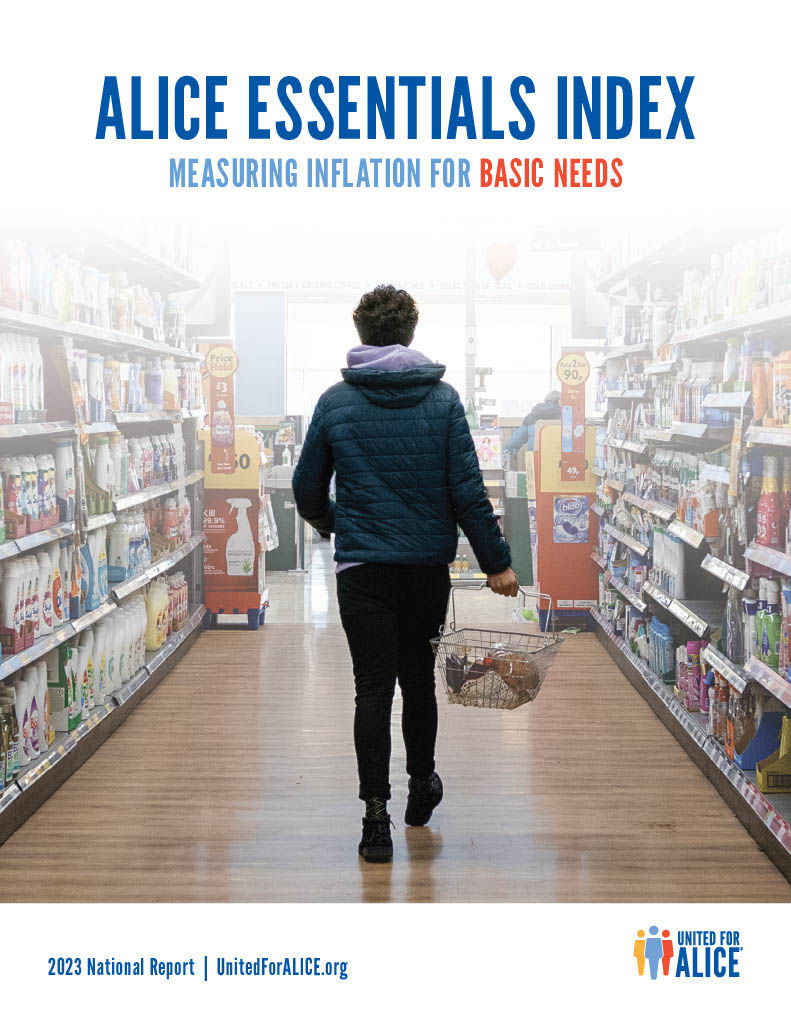New Inflation Tracker: Cost of NJ’s Basics Rising Faster Than CPI
- johnyocca5
- Jul 20, 2023
- 2 min read
ALICE Essentials Index reveals NJ’s retail salespeople lost $28,300 in buying power over 15 years
The cost of six household essentials in New Jersey has risen at a faster clip than inflation, leaving low-wage workers priced out of affording the basics, according to United Way of Northern New Jersey and its research arm, United For ALICE.

Over the course of 15 years, low-wage jobs didn’t keep up with the increased cost of essentials. Workers in retail sales, the most common occupation in New Jersey, saw an average $28,300 loss of buying power — more than a year’s earnings, according to findings within the ALICE Essentials Index.
The gulf that grew between wages and the cost of basics affects the nearly 1.3 million or 37% of New Jersey households that can’t make ends meet, according to United For ALICE calculations. This includes households in poverty and those that are ALICE (Asset Limited, Income Constrained, Employed), earning above the Federal Poverty Level but less than the cost of basics.
“The ALICE Essentials Index shows that no matter how hard ALICE families worked, they were priced out of financial stability,” said United Way of Northern New Jersey CEO Kiran Handa Gaudioso. “ALICE was grappling with a surge in inflation before the rest of us. We need to do better for our essential workers and factor these insights into delivering stronger supports for vulnerable families.”
Between 2007 and 2023, the ALICE Essentials Index shows basics rising in price by 59% with projections for 2022 and 2023. In contrast, inflation — as measured by the national Consumer Price Index (CPI) — rose 48% during that time.
The ALICE Essentials Index tracks the rising cost of essentials, including housing, child care, food, health care, transportation and a smartphone plan. In contrast, CPI tracks inflation across more than 200 categories of goods and services, including luxury items, such as power boats and landscaping services. Yet, CPI is used to calculate increases in critical supports for low-income families, including Social Security and Medicaid.
“ALICE doesn’t buy power boats or hire landscapers — ALICE is doing the landscaping,” said Stephanie Hoopes, Ph.D., national director for United For ALICE, a U.S. research organization driving solutions to financial hardship. “ALICE is simply trying to afford safe housing and dinner on the table. The ALICE Essentials Index recognizes this disconnect and provides a new, targeted inflation measure that could help guide eligibility and increases in assistance programs.”
To learn more about the ALICE Essentials Index, and to explore the online dashboards, visit UnitedForALICE.org/Essentials-Index.
Search for more news and stories on related topics:




Comments